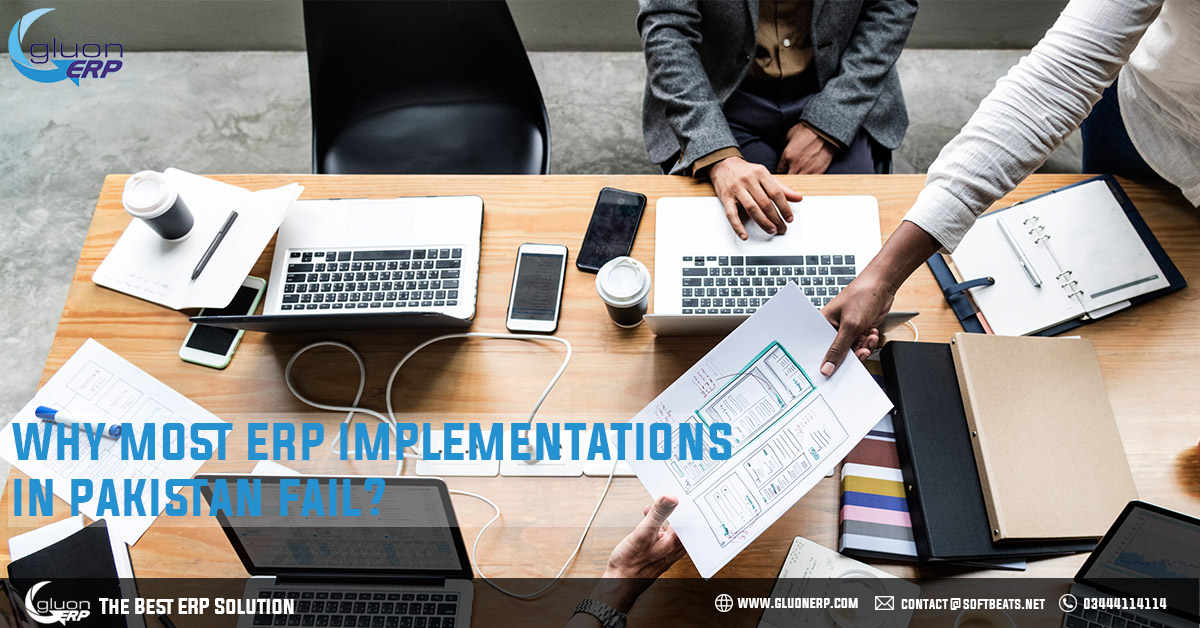
If ERP Solutions Are So Comprehensive, Why Most Executions in Pakistan Still Fail?
There’s no lack of published information on the enormous potential capabilities span and ultimate benefits of enterprise resource planning (ERP), customer relationship management (CRM) and other enterprise solutions in the manufacturing sector. Similarly, there’s also a plethora of research on these enterprise solutions’ pain points, implementation delays, and buyers’ remorse in the industry.
Difficult or easy, companies direly need ERP systems to streamline business processes, operations, connect suppliers and partners, and manage the complexity that accompanies growth. So it’s no surprise that there is still a sizeable and growing buyer pool for ERP software solutions even 30+ years after their initial introduction: the ERP software market is expected to reach $ 41.69 Billion, globally, by 2020. With such big dollars on the table, it’s comprehensible that there are still literally thousands of vendors providing solutions in this realm, all wanting to get even a small piece of this giant revenue pie.
If manufacturers’ ERP software solutions are so all-inclusive and there are so many vendors servicing this planetary, why are there still solution holes (“software fatal flaws”)? What are these limitations and what negative impact do they have on corporations?
Where advanced systems documentations fall
What’s important to manufacture companies is not only having access to their business and operational data, it’s also the method of getting access and the ultimate, often cross-purpose, usage of it. There are a multitude of partial fixes available, starting with business process management (BPM) software, or Microsoft SharePoint, Google Drive, or Box-type workflow-based cloud content management solutions. These can be inexpensive but they lack defined applications and data management automation, also they lack process integration with major ERP.
On the other hand, Master Data Management (MDM) software solutions can bond data and content but they lack the business intelligence to execute processes and operations. And, as stated earlier, ERP and systems alone don’t do it all.
Structured data (in rows and columns that can be easily ordered and processed with data mining tools) and unstructured data (raw/unorganized in emails, PDFs, images, video) must be apprehended, processed, and transported accurately and impeccably. But what’s missing in available solutions are the pre-built business objects, rules, and taxonomy that allow corporations to route data, documents, convert this captured data routinely, and/or manage business objects through easy, smart, forms-based systems.
Lack of change management
Most ERP in Pakistan fail after execution is because people start feeling that they will be replaced by machines. People working in positions for years are not ready for change; on top of that their employees make it tougher by not preparing people about an upcoming change in processes and operations. This, as a result, creates a lot of problems and instead of technology making life easier, it acts as a hindrance.
If you are looking for an ERP that addresses these issues and work around solutions that are perfect for you, visit GLUON or look for our demo.




Comments